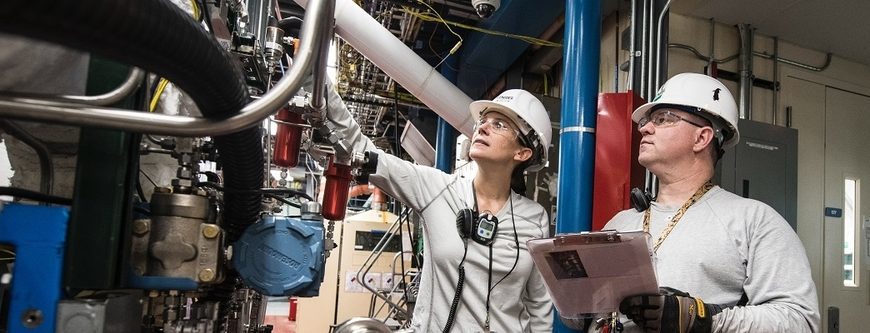
On an engineering operative apprenticeship course, you’ll help carry out a range of engineering operations, including ensuring machines and equipment are maintained and serviceable.
An engineering operative is responsible for many engineering duties, including ensuring that machinery and equipment are maintained and functional, dealing with breakdowns, performing restorations and repairs, fabrication and installation, and providing technical support.
As an engineering operator, you will carry out engineering activities and inspections while adhering to safety standards, identifying hazards, and adhering to work instructions.
The engineering operative job is transportable across sectors, and the area you specialise in will determine where you finish your apprenticeship.
Specialisations include maintenance, mechanical manufacturing, electrical and electronic engineering, fabrication, materials, processing or finishing, and technical support.
What you’ll learn
On an engineering operative apprenticeship course, you’ll learn to:
- Work safely at all times, in accordance with applicable health and safety laws, regulations, environmental compliance procedures and systems, and other requirements.
- Identify and resolve any risks, hazards, hazardous circumstances, or problems that may emerge in the engineering environment while doing their duties.
- Exhibit exceptional communication skills, including oral, writing, and online communication.
- Complete all required papers. utilising the correct terminology, as needed, accurately, swiftly, and legibly
- Obtain and follow the documentation, specifications, and work instructions in accordance with time constraints and the roles and responsibilities allocated to engineering tasks, extracting the necessary data/information from specifications and related papers.
- Choose and use appropriate tools, equipment, and materials to carry out the engineering task.
- Deal with any problems that may occur in the production environment within the scope of their responsibilities.
- Maintain workplace organisation and waste reduction by operating efficiently and effectively.
Entry requirements
You’ll usually need:
- some GCSEs, usually including English and maths, or equivalent, for an intermediate apprenticeship.
- Apprentices without level 2 English and maths will need to achieve this before taking the end-point assessment.
Assessment methods
The End Point Assessment comprises two distinct assessment methods:
- Practical observation
- Professional discussion
Duration, level, subjects and potential salary upon completion
- Duration: 12 months
-
Level: 2 – Intermediate Apprenticeship
- Relevant school subjects: DT, science and maths
- Potential salary upon completion: £25,000 per annum
Apprenticeship standard
More information about the Level 2 Engineering Operative Apprenticeship standard can be found here.
Apprenticeship end point assessment
For more information about the End Point Assessment Process, please read the Institute of Apprenticeships’ information page.
